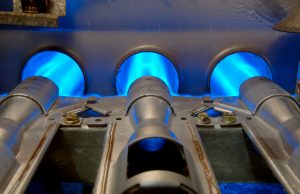 Winter is on the way, and with cooler temperatures comes a need to carefully assess the state of your furnace. A comparatively new furnace is probably all set for the next few months, but as your system gets older, it’s going to struggle to do its job more and more. Eventually, you’re going to need to get it replaced, and if your furnace is on its last legs, it’s probably better to do so now, before the winter begins, than to deal with a breakdown and replacements later on in the year.
Winter is on the way, and with cooler temperatures comes a need to carefully assess the state of your furnace. A comparatively new furnace is probably all set for the next few months, but as your system gets older, it’s going to struggle to do its job more and more. Eventually, you’re going to need to get it replaced, and if your furnace is on its last legs, it’s probably better to do so now, before the winter begins, than to deal with a breakdown and replacements later on in the year.
But how can you determine that? Frankly, only the individual homeowner can determine what’s best for their heater. Furnaces are as unique as the homes they heat and no single furnace is quite like any other. You yourself are going to need to make the call to get a new furnace installed, since you know your existing furnace better than anyone.
Having said that, there are two very reliable guidelines to help you make that decision. In most cases, both of them should be applied to determine if you need a new furnace. One or the other on their own is probably not enough to merit replacement, but if both of them are present in your furnace, it’s likely ready to go.
Has the Warranty Expired?
The state of the warranty is a big factor in determining the cost of repair a faulty furnace, and thus the need to replace it instead of just fixing an existing problem. Warranties cover the cost of the original components in the furnace, which means if they break down they’re covered. You only need to pay for labor and perhaps a few incidentals (like the cost of bolts or fittings), which keeps repair costs down in the event of trouble.
Even if the warranty has expired and there’s a breakdown, you should consider repairing the furnace instead of replacing it, provided the repairs are inexpensive. Only when the warranty has expired and the cost of repairs is higher than you think the system is worth should replacement become an option.
Are the Costs Too High?
When it comes to repairs, a single repair job that has become too expensive is probably grounds for getting the system replaced (again, provided the warranty has expired.). Replacement is also a better option if you’re experienced multiple repairs in a brief period of time: say, more than two repair calls in a single twelve-month period.
The same holds true if there’s nothing actively wrong with your system, but the monthly cost of operating it is getting higher than you’d like. As furnaces get older, wear and tear will decrease their efficiency, and while you can slow the pace of that with regular maintenance sessions from a trained professional, sooner or later, every furnace wears out. If the monthly cost of running the system is more than your budget can handle, getting it replaced may be the best option. New furnaces are invariably more efficient than old ones, which can give your wallet some blessed relief.
For heating replacement services in Tigard, OR, call The Clean Air Act today!
